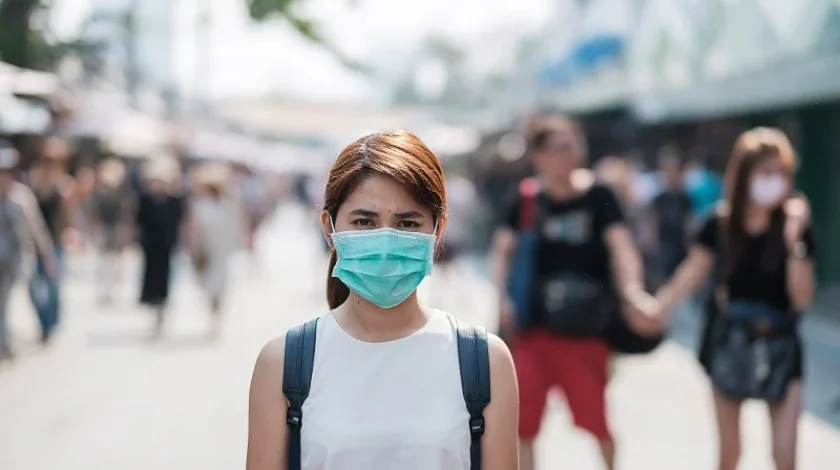Overnight, the World Health Organisation declared the spread of the novel coronavirus a global health emergency. As the world watches the coronavirus outbreak unfold, employers no doubt have questions about what they should be doing to ensure the safety of their employees, especially as government guidelines seem to be changing on a daily basis as the virus spreads and develops.
The Department of Health has urged Australians that have been in Wuhan or the Hubei province, or in contact with someone who has been infected with the virus, to self-isolate for 14 days. This has been the position for some days. For those who have travelled to China outside of the Hubei province, the initial Department advice was that there is no need to self-isolate unless the individual is showing symptoms of the virus.
However, in the past few days, the Department has revised their position to recommend that those in schools and childcare centres (staff and children) self-isolate if they have recently returned from China, even if they are not showing symptoms of the virus, and have not been in Wuhan or the Hubei province, or in contact with someone who has.
However, as at the time of writing on the morning of 31 January 2020, the Department’s publications available on their website appear to maintain that for those returning from China (except for those attending or working in schools and childcare centres), there is no need to self-isolate. However, given that WHO has now declared the situation a global emergency, it remains to be seen whether this advice will be updated.
In the meantime, many businesses are considering taking the same cautious approach recommended for schools and childcare centres, and directing all individuals who have recently arrived from China, to stay at home for at least 14 days. For businesses, these types of novel directions raise various employment law considerations.
Employees caught up in the lockdown in Wuhan may be caught up in the Christmas Island quarantine proposal
For those employees caught up in the lockdown in Wuhan, they are amongst those who, by Department standards, should be in isolation or quarantine until they are cleared of the virus. They are therefore not fit to be at work and would not be medically cleared to return to work. This type of absence should be treated by employers as paid personal sick leave. If the employee has exhausted paid personal leave entitlements, the leave should be treated as unpaid personal leave.
Employers should be aware that it is unlawful to discriminate against employees because of an illness or injury, and that employers could face legal action such as adverse action claims.
Employees experiencing delays in travelling out of China
For employees experiencing delays in travelling out of China and who are no longer on pre-approved annual leave as a result, we recommend that employers consider being empathetic to the situation. The purpose of annual leave is to enable the employee to take requested time off from work. Given that the absence from work for employees experiencing travel delays is involuntarily, employers should consider this type of absence as unpaid leave.
For those employees in China for work purposes, employers still have workplace health and safety obligations to those employees. Attempts should be made to contact the employee to enquire of their whereabouts and the delays currently being faced.
Employees returning from Wuhan or the Hubei province
For employees returning from Wuhan or the Hubei province, employers should comply with current Department advice, which is to direct those employees to remain at home in self quarantine for at least 14 days from their arrival in Australia, before returning to the workplace. Employers could also insist on medical clearance before allowing the employee to return to the workplace. Again, this type of leave should be processed as paid personal leave, or unpaid personal leave if paid personal leave accruals have been exhausted. This should also be the approach taken for carers required to remain at home to care for children or the elderly, who are in isolation.
Employees returning from China
This situation is the most ambiguous. The current Department advice is that individuals returning from China who are not showing any symptoms of the virus and who have not been to Wuhan or to the Hubei province, do not need to self-isolate. However, many businesses are choosing to take extra precautions to protect the safety of their employees and to maintain their workplace health and safety obligations to create a safe workplace, by directing employees who have recently returned from China, to remain at home for at least 14 days, and to obtain medical clearance before returning to work, if they are showing symptoms of the virus.
For those individuals who are not showing symptoms of the virus, they are according to current Department guidelines, fit to attend work. Therefore, an employee directed not to return to work, despite being fit to return to work, should not be directed to utilise their accrued annual leave or personal leave. Instead, employers should consider this absence as paid special leave, similar to other types of special leave like gardening leave. However, employers should be mindful to convey that the direction not to attend work is a precautionary one and is not action taken for any discriminatory reason.
This position may change if Department guidelines respond to the WHO declaration of a global health emergency, by directing that all those who have returned from China, also self-isolate. This would mean that employers should consider taking the same approach to the employee’s absence, as those who are returning from Wuhan or the Hubei province. That is, the leave should be treated as paid personal leave, and for those who have exhausted personal leave accruals, as unpaid personal leave. However, employers can still choose to consider these absences as paid special leave.
Employees are required to comply with reasonable, lawful directions of their employers. If employers are paying employees returning from China to remain at home, the direction to remain at home would constitute a reasonable, lawful direction. Failure to comply could be grounds for disciplinary action, although employers should tread with extreme caution if heading down this route, given the risk of discrimination or general protections claims that could arise.
If the Department guidelines change to recommend that all employees that have travelled from China self-isolate, and employers choose to classify that leave as personal leave and not a special type of paid leave, in our opinion, it is unlikely that employers would be penalised for failing to pay for the leave. This is because the Fair Work Act does not provide for a special category of paid leave that would apply in such unprecedented circumstances, and employers could rely on Department guidelines in support of the decision to treat those absences, like any other illness.
If possible, employers should arrange for employees returning from China to work from home during the 14-day isolation period. Employers should ensure that arrangements are made to create a safe working from home environment for those employees, which could involve providing suitable working equipment such as computer, laptops, printers, mobile phones and ergonomic chairs. Employees in this situation should continue to be paid their ordinary wages.
As the coronavirus situation changes from day to day, employers should remain vigilant about keeping up to date with the most recent updates from the Department of Health. If you have any questions or require further assistance, please do not hesitate to get in touch with a lawyer in Coleman Greig’s Employment Law team.














